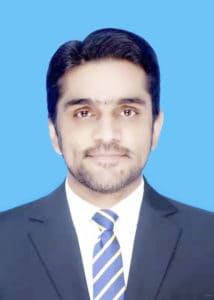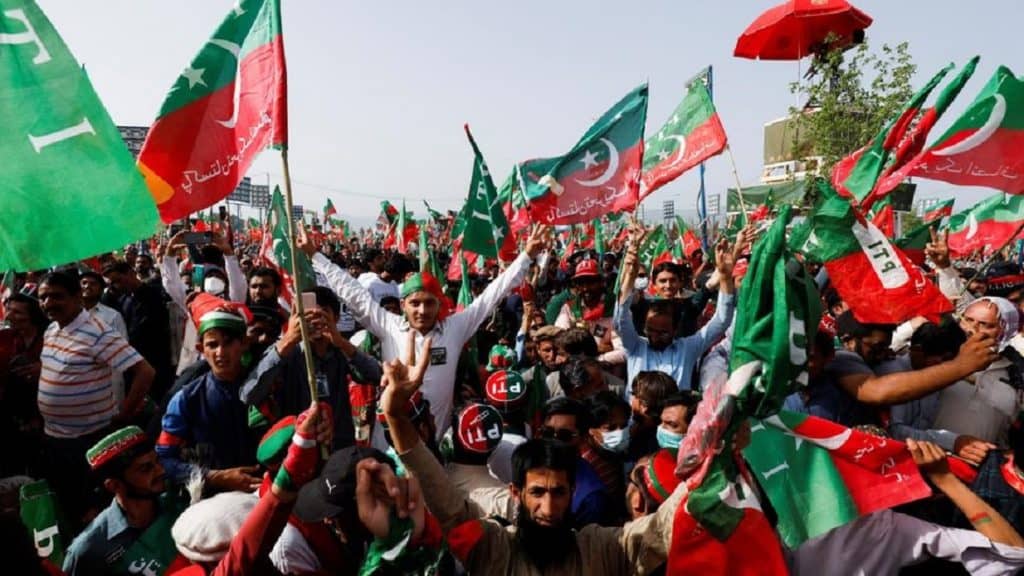By Rana Danish Nisar
The term “Cream of the Crop” refers to those who occupy prominent or leading positions in the national institutions of any country or state. They might be made up of regular people, wealthy individuals, political parties, or political entities in a country.

Proceeding on, from its very inception, a small range of political and politico-socio aristocrats have dominated Pakistani polity. Pakistan has spent a good chunk of time fighting for the advancement of its representative democracy, the expansion of its GDP, and the security of its integrity for peace and stability, but all in vain. It has been more than 74 years.
There seem to be a plethora of additional factors that contribute to political upheaval, democratic organization collapse, and malfunction of political groups. People are entitled to self-government through an open and democratic voting process, and democracies is a system that represents the people and supports their liberties. The notion of elected officials being answerable to the presumably defenseless people is a fundamental tenet of democracy. If the applicable framework of progressive principles is taken into consideration,
Pakistan’s democracy remains to be a fiction. By actuality, numerous families and individuals own the political groups in Pakistan. The person puts the concerns of the families or perhaps the particular before the will or the dignity of the people. Such power classes generally use their own spheres of political clout, but they have a collaboration system with each other in order to bolster their unique status and power. These are the top executives in business, aristocracy, politics, and government. Whenever these groupings initially gained control, select aristocrats or very powerful individuals were given the most prominent ministries and jobs. Members pretend to follow the so-called tory manifesto in front of the public, but once in power, they only work to further their own goals and correctly mentioned desires.
Only within the context of certain organizations’ or personalities’ political infighting, liberal principles and traditions never survive. The center must disperse authority to the areas, municipalities, and gram panchayats starting at the top. Authorizing municipal governments to serve customers and grant them the right to charge levies, take donations, etc. This platform’s goal is to distribute governmental authority from greater to sub-national governments. Democratic state demonstrates that the masses are governed in accordance with their rights and wellbeing.
Whenever it comes to sharing control from primary to secondary layers, the wealthy power class raise platitudes about the interests of the general population yet are unwilling to do so. Usually the political class holds a position of aristocratic culture, and in the usual government of South Asia, aristocratic monarchs are regarded with the greatest esteem. The elected politicians have taken on the role of tyrants. The primary issue is that those in positions of authority encourage a predetermined disposition by excluding or excluding others who have alternative ideas or disagree with their preconceived conceptions. the process through which governmental groups, civic leaders, and other stakeholders get involved in politics in democrats. All those are actually very important institutions for mobilizing civic involvement for political goals and free expression.
Unfortunately, in Pakistan, the democratic forces essentially are either fighting for dominance or serve a limited group of elites. These groups of elites have their own notions regarding living in the land of the pure. They have their own favorable laws which follow the Anacharsis quote “Written Laws are like spider’s webs; they will catch, it is true, the weak and the poor, but would be torn in pieces by the rich and powerful”.
Currently, the country is facing high class or polarization which leads the country towards a more chaotic situation. The one class has power to lead the society and country all institutions and may has power to recharge the social structure or domains according to their own interests and favors. The second weak class only has power to accept the order of the first class respectively. This polarization is not only seen in social structure but also appears in politics, educational sectors, and financial sectors as well. The political party’s leaders, their manifestoes and hatred sentiments against each other and their workers are factors behind the rising polarization in the country. The current situation is really bad.
The political parties and their workers are always busy making hurdles against their competitors. The problems of the innocent civilians are actually are not the part of their discussions, manifestos and their life. They consider the innocent people as insects and only use them for their own political motives. Inherited, political elites are more powerful and their workers inherited are too weak as compare to their political Landlords. Inherited, poor people are facing spurning for a long time.
The upper/elite class has only power to do participate in the elections procedure and definitely rule the country. Consequently and with conclusion remarks, this is the saddest picture of so-called democracy in the land. Even democracy itself has no power to do accountability to these inapt leaders, political elites etc. There should be real accountability forum who may check their VVVVIP status and culture. There should be real democracy in the country, who may do the accountability of all the people, even all the political leaders, and even the premier as well.
Rana Danish Nisar – The author is a PhD (International Relations) Student at the School of Politics and International Studies (SPIS). He holds Mphil in (International Relations), Masters in (Pakistan Studies), and Masters in (International Relations) degrees. He won acceptance Harvard Project for Asian and International Relations HPAIR (USA), 2017. His research interests are broadly in South Asian Affairs, South Asia Geo-Politics, India-Pakistan Relations, South Asian Nuclear Politics, US and South Asia, Indian Ocean, Security studies, South Asian developments studies.
(The views expressed in this article belong only to the author and do not necessarily reflect the views of World Geostrategic Insights).







